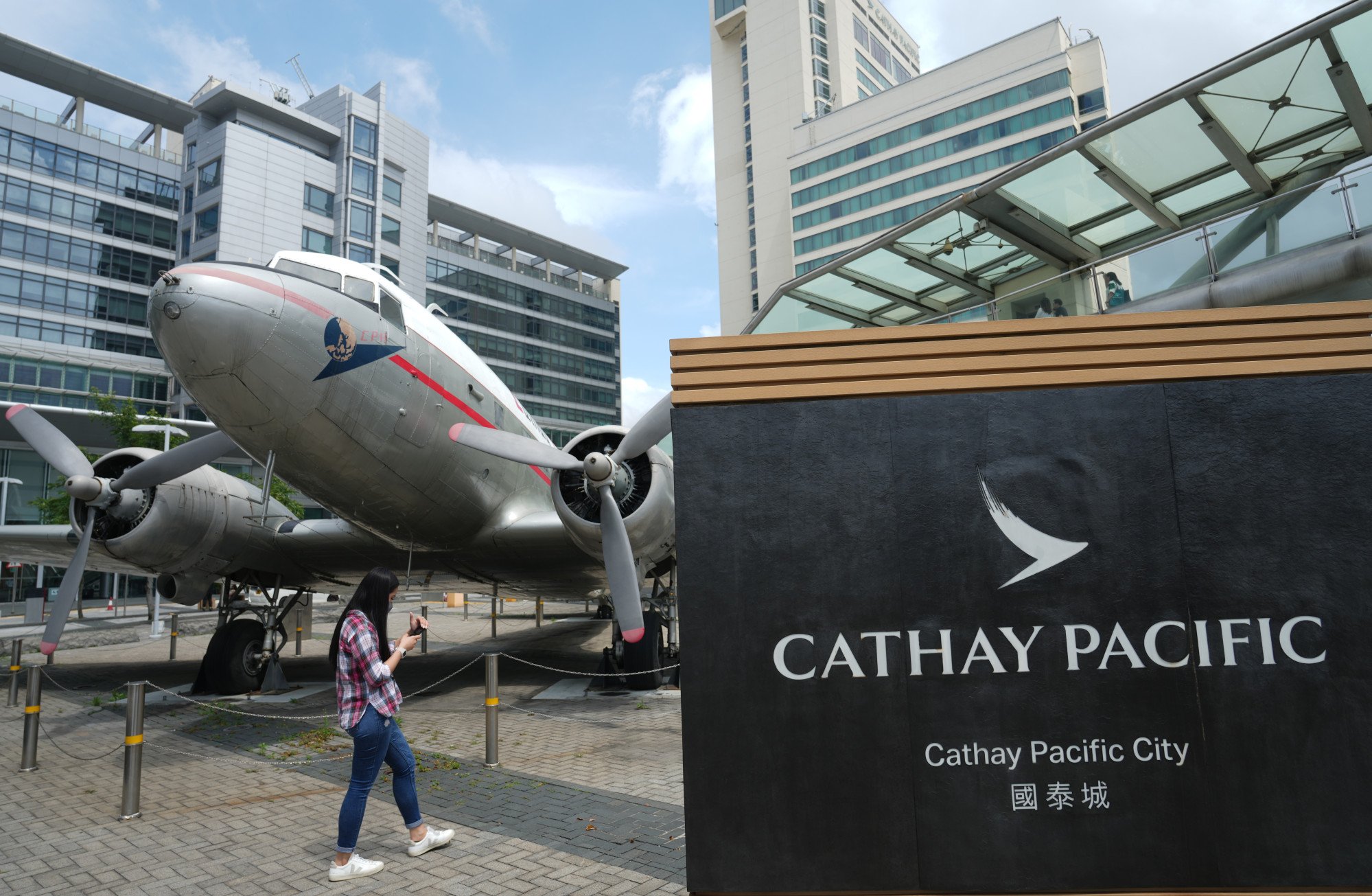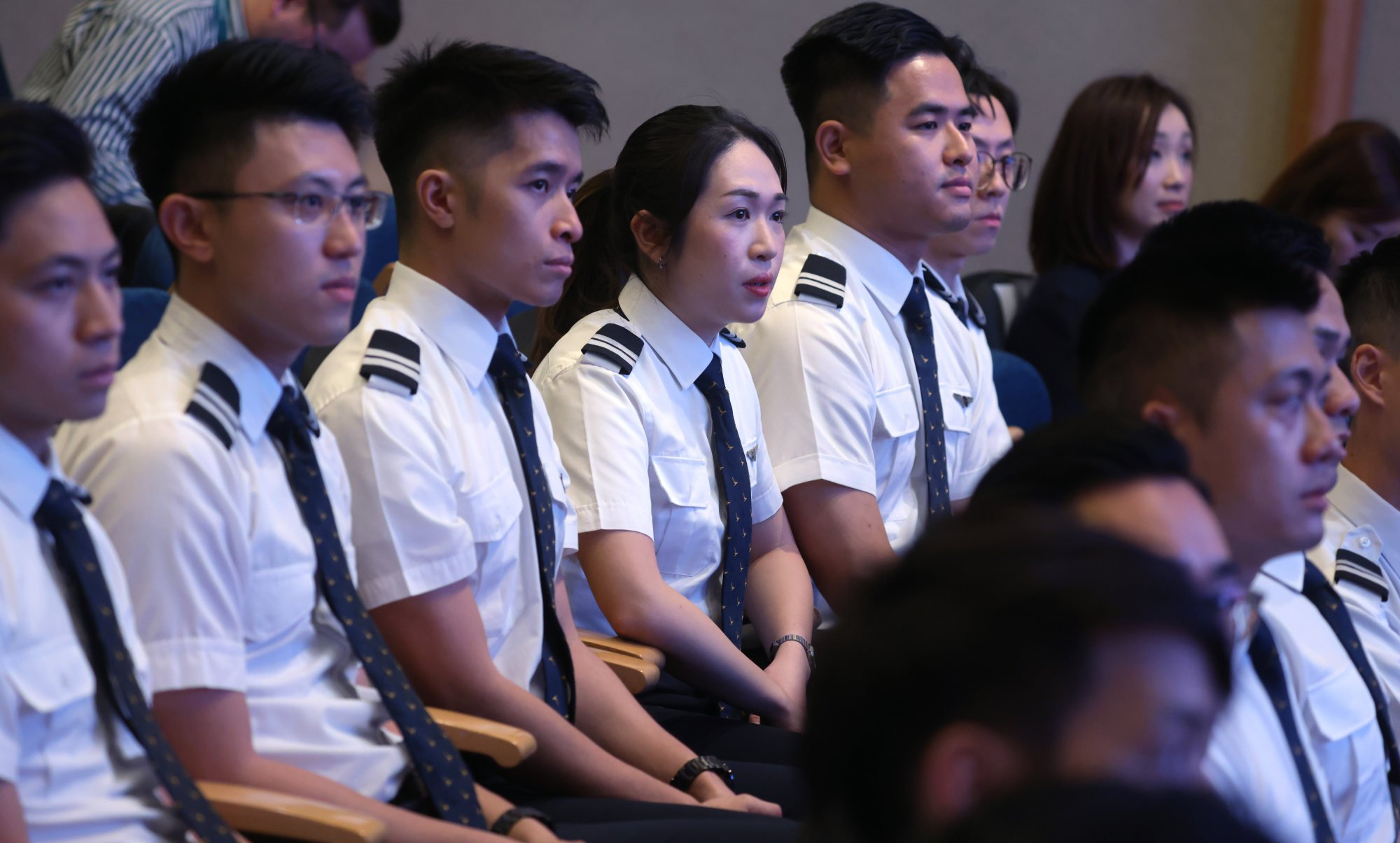
Cathay Pacific must review Hong Kong cadet pilot hiring, training after US crashes: experts
- Tycoon Allan Zeman among air industry figures calling for new look at cadet pilot selection and training after three incidents at US training school
Entertainment tycoon Allan Zeman, a former Airport Authority member, told the Post that the airline should work with its US partner AeroGuard Flight Training Centre to revise recruitment and teaching methods for cadets because of the “alarming” rise in serious incidents reported by the Arizona-based flying school.
“It’s not comforting to see three different incidents happen in a matter of a couple of weeks,” Zeman said. “So obviously, there’s something wrong.
“They’ve got to examine the cadet hiring, the training programme and the whole procedures, just to make sure that this cannot happen.
“They have to examine the criteria to make sure that they’re hiring the right kind of candidates to go to the training school, because this shouldn’t happen.”
The airline said last week that it was taking the incidents seriously.
Jay Meade, AeroGuard’s vice-president and head of training, told Cathay cadets in an email he had been forced to ground them pending an investigation after three incidents in as many weeks.
Meade said the incidents – a wingtip collision with a fixed object, a bounced landing which caused a substantial impact to the aircraft’s propeller and a plane which ran off a runway – were significant.
He added in his email that the pilots in command had decided to continue with their mission, but insisted they should have spoken to their duty flight instructor before they carried on.
The cadets were not “meeting expectations regarding training, guidance and direction, as related to the application of proper aeronautical decision making”, Meade said.
Zeman also advised Cathay to re-hire some experienced pilots with the inducement of more cash to help make up the airline’s flight crew shortage and meet the company’s aim of reaching full pre-pandemic capacity.
The target for pre-2019 levels of service was pushed to early 2025 from the last quarter of this year after Cathay was hit by flight cancellations over the winter.
“Cadet pilots are good for the future, but obviously they still need experienced ones,” Zeman said.
“It’s very important that they really might have to pay a little more money and hire back some of the pilots whom they let go.”
The airline will need another 500 pilots this year to meet its target of reaching pre-pandemic capacity early next year.
The new hires will increase the number of pilots to 3,400 – still 400 fewer than in early 2020.
Cathay’s website said people aged 18 and above, with the right to live and work in Hong Kong and who are secondary school graduates with good passes in English language and mathematics or science are eligible to apply for the one-year cadet pilot course.

Potential candidates must also be physically fit and meet the company’s flight deck reach requirements.
The cadets can be employed as second officers after they pass their training, but deductions are made from their salary every month for six years to recoup the HK$1.1 million (US$140,816) it cost to train each of them.
Li Wing-foo, the chairman of the Staffs and Workers Union of Hong Kong Civil Airlines, agreed that Cathay had to work with the US centre to see if improvements were needed to the programme or training process.
“Safety is of paramount importance with respect to aviation,” Li said. “Both Cathay and the centre need to find out the reasons why the students behaved the way they did and see if there is anything they can improve to address the problems.”
One Cathay pilot, who asked not to be named, said the threshold for acceptance of cadet pilots had been lowered after flight grading – a specially designed aptitude and flight skills assessment created to prequalify and prepare prospective pilots – was dropped a few years ago.
“The cadets would do a technical interview and then they would have to go down to Australia and do about two or three hours in light aircraft just to see if they’ve got the aptitude to fly,” he explained.
“That was called the flight grading, which filtered out people who obviously couldn’t do the flying course.
“They’ve got rid of the flight grading process so if you can pass an interview then basically you’re on the course.”
Paul Weatherilt, the chairman of the Hong Kong Aircrew Officers Association, said flight grading was a better, but more expensive, way to select cadets, yet insisted that qualification standards would remain the same without it.
“I don’t believe standards will have dropped,” Weatherilt said. “Perhaps with no flight grading, there would be a slightly higher failure rate. But, overall, standards should be the same.
“It’s the same for recruiting more generally. I don’t think that standards will have changed much.”

Li agreed and said that even if the entry threshold had been lowered, the gatekeeping requirements had remained the same and graduates were still expected to reach the required standards.
Cathay did not say if the company had changed its policy or lowered entry requirements for cadets.
It added, however, that it was focused on “ensuring that all cadets meet the necessary requirements and demonstrate the required skills and competencies before being considered for employment”.
“We are committed to providing comprehensive training and ensuring that our future pilots are well equipped to uphold the highest levels of safety and professionalism,” a spokesman said.
Hong Kong’s Civil Aviation Department has asked Cathay to carry out a “thorough” investigation into the incidents and submit a report on its findings.

